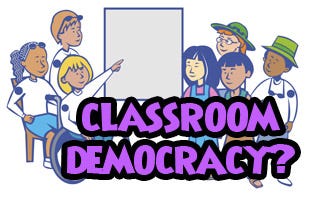Response to EXPLORE: SIM THEORY
The United States has rich history of cooperative self governing and cooperative learning.
The Mayflower compact is once such example off early cooperative governing; this document laid out how people would live, and the rules they would follow in cooperation with one another.
One example of early American cooperative learning is the one room school house. These classrooms depended on everyone working together and abiding by common rules to be successful. The educator often relied on older students to help teach and guide younger students.
Some of the intellectual roots for the social interactive model of teaching and for collaborative learning stem from democratic thought and practice (J. Dewey), active learning, cooperative behavior, and respect for pluralism in multicultural societies (L. Vygotsky, D. and R. Johnson, R. Slavin, S. Kagan, etc.) Dewey promoted education centering around multiculturalism and that the classroom should mirror society.
Cooperative learning also stems from theories about experiential learning - meaning we learn best and most efficiently when the student is participating in the learning (usually by doing).
From these theories on learning, our text highlights the importance of establishing a democratic culture in the classroom. In democratic classes, differences are embraced and valued since everyone's experiences, views, interests and talents are valuable since they can inform the student body. (paraphrased from our text)
Teacher's are responsible for fostering and creating an environment where a democratic classroom can exist. Teacher's much also balance the power in their classroom so that students have say over some aspects of the classroom. Examples include input on classroom rules, contributing to classroom maintenance, organization and clean up and participating in group learning.
- They feel safe and secure in the class.
- They experience academic and social success.
- They identify areas of personal talent and interest.
- They feel accepted by other children and adults.
- They contribute to the success of the class and view themselves as an important part of the class.
- Which students are leaders when participating in group building activities?
- Which students demonstrate good verbal skills?
- Which students demonstrate good social skills?
- Which students are knowledgeable about the content and skills of the subject area?
- Which students are shy, withdrawn, or reticent?
- Which students have difficulty communicating with others?
- Which students do not actively participate in the group activities?
- Which students seem to have trouble interacting with other students?
- Which collaborative skills seem to be strong with these students? (to reinforce)
- What skills or attitudes are needed by this group of students in order to be successful in future collaborative or cooperative activities?


Comments
Post a Comment